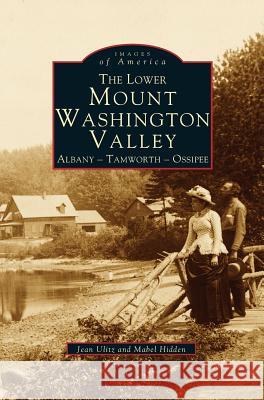Lower Mount Washington Valley: Albany, Tamworth, Ossipee » książka
Lower Mount Washington Valley: Albany, Tamworth, Ossipee
ISBN-13: 9781531640415 / Angielski / Twarda / 1996 / 130 str.
The Lower Mount Washington Valley became the gateway to the entire valley in the 1700s. Settlers saw both the scenery and the possibilities of the deep and steady rivers for water power and travel, the timber for homes, the rich earth for planting, and the abundance of food in forests and streams. The early years were not easy, and men and women faced the challenges of the wilderness: hard work, fierce wildlife, possible injury, and loneliness. Seeking
companionship, families bonded together and created a
sense of community amidst the mountains and valleys of New Hampshire's expansive north country. This collection of photographs, many never before
published, graphically illustrates the beauty of the area, the strength and character of its people, and the simple and practical lines of the early homes, mills, and one-room schoolhouses. It depicts the gradual changes that took place over a century of life, from the 1850s to the 1950s. Tough, strong men and women, the early settlers often became landowners of substance. They left a legacy of the same qualities to their descendants, many of whom are still living in the Lower Mount Washington Valley.
The Lower Mount Washington Valley became the gateway to the entire valley in the 1700s. Settlers saw both the scenery and the possibilities of the deep and steady rivers for water power and travel, the timber for homes, the rich earth for planting, and the abundance of food in forests and streams. The early years were not easy, and men and women faced the challenges of the wilderness: hard work, fierce wildlife, possible injury, and loneliness. Seeking
companionship, families bonded together and created a
sense of community amidst the mountains and valleys of New Hampshires expansive north country. This collection of photographs, many never before
published, graphically illustrates the beauty of the area, the strength and character of its people, and the simple and practical lines of the early homes, mills, and one-room schoolhouses. It depicts the gradual changes that took place over a century of life, from the 1850s to the 1950s. Tough, strong men and women, the early settlers often became landowners of substance. They left a legacy of the same qualities to their descendants, many of whom are still living in the Lower Mount Washington Valley.











